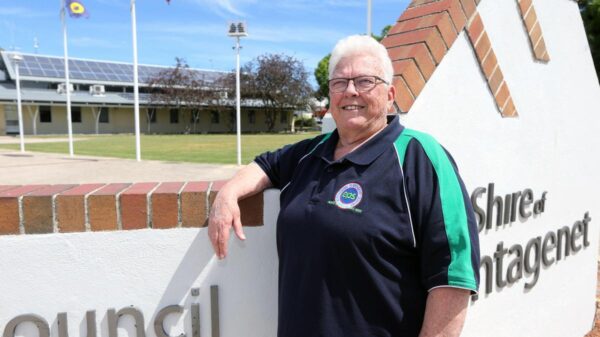Parents are increasingly prioritizing their children’s readiness over traditional school entry dates, as recent statistics reveal that efforts to enhance early childhood education have not improved school readiness. A national survey of approximately 300,000 children, tracking their progress in the first year of primary school, indicates that fewer students are meeting key developmental milestones, particularly in areas such as physical health, social competence, emotional maturity, and language skills.
This trend comes despite significant investments in early education initiatives since 2009, aimed at improving outcomes through programs like free kindergarten for all four-year-olds. For instance, Lauren Marshall, a mother from Box Hill North, has opted to enroll her son Jock in a second year of four-year-old kindergarten instead of sending him to school this year. Jock, who turns five in March, will repeat kindergarten in 2026 because Marshall believes that his developmental needs are better suited for an additional year of preparation.
Marshall notes that parents are increasingly attuned to their children’s unique requirements rather than adhering strictly to age-based guidelines. “It’s about giving children what they need, rather than someone else telling them what they should do,” she explained. She also highlighted Jock’s learning style, which differs from that of his older brother, making the decision to delay school entry a more favorable option for her family.
Growing Trend of Delayed School Entry
According to Kay Margetts, an associate professor at the University of Melbourne, the percentage of children repeating kindergarten has surged from 3 percent to 10 percent in recent years. “Parents today are more aware of the importance of ensuring their children are ready to face the challenges that school brings,” Margetts noted, emphasizing the growing recognition of individual readiness over arbitrary age limits.
The process of assessing a child’s readiness for school often begins in four-year-old kindergartens, where early childhood teachers evaluate developmental progress. Additionally, children experiencing delays in two or more developmental areas can benefit from a funded second year of kindergarten at no cost. Schools typically accept students who turn five during April for enrollment in the same year, with later birthdays generally requiring a year’s delay.
A joint survey conducted by the University of Wollongong and Macquarie University revealed that two-thirds of parents surveyed planned to hold their children back from entering school for a year. The reasons cited included the child’s gender, socio-emotional readiness, behavioral preparedness, and considerations related to family dynamics and childcare costs.
Individual Approaches to School Readiness
Families are taking varied approaches to school readiness, reflecting the unique needs of each child. Miranda Foster, a mother from the Mornington Peninsula, emphasized that her children require different strategies as they prepare for school. After her son repeated kindergarten, she noted that her daughter exhibited signs of not being ready for school as well. “Our gut feeling was that she wasn’t going to be ready,” Foster recalled. Early communication with her daughter’s kindergarten teacher helped address those concerns, allowing for a more tailored approach to her child’s education.
Foster observed significant progress in her daughter’s social skills during the additional year of kindergarten. “We have no regrets repeating her,” she stated, underscoring that the decision was ultimately beneficial for her daughter’s development. Her daughter transitioned to prep this year with relative ease, while her youngest child will be entering school directly.
Margetts commented on the emotional factors influencing school entry decisions, noting that sometimes it is the parents who are hesitant about starting school. “It can be about families not wanting their child to grow up,” she said. This emotional readiness often translates into necessary adjustments in family routines, including changes to daily schedules.
Concerns about children’s socio-emotional development and their ability to cope with new social dynamics remain paramount. Margetts highlighted that children with separation anxiety often face greater challenges when adjusting to school environments. “It’s an individual decision, and it is important to avoid making choices based solely on age,” she advised, encouraging parents to prioritize their child’s individual readiness.
The shift towards a more personalized approach to school readiness reflects a growing recognition among parents that developmental milestones can vary widely among children. As families navigate these decisions, the emphasis on tailored support will likely continue to shape early childhood education practices in the years to come.



































































